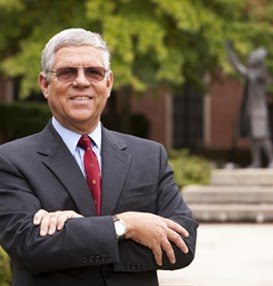The Changing Face of Graduate Level Christian Education 2025-08-30T08:06:33-04:00 Ben Witherington
Unfortunately, graduate level Christian education has been in trouble for a while. Seminaries are closing, faculty replacements of those retiring is happening less frequently, and going to purely ‘online’ education is not saving the day. And in addition to all this there is the problem, as well as the promise, of Artificial Intelligence (which by the way relies on existing data created by real human beings with all its flaws, foibles, and yes also facts). The temptation to let AI write one’s papers is so great, that at my alma mater, UNC, evaluation of learning has had many many professors going back to in class blue book testing, where plagiarism and cheating are almost impossible.
At the same time all this was happening, with less and less students prepared to move to a school to get their graduate education, there is the further problem of evaluation. Seminaries in particular are charged not only with educating the future pastors and teachers of churches and schools. They are charged with evaluating the spiritual growth and maturity, and the gifts and graces of these ministerial candidates. And frankly, it is quite impossible to do these aforementioned tasks if the student is purely online. The danger is that a seminary will be unleashing on the church, candidates who are academically capable, but where they are in their walk with the Lord is difficult if not impossible to discern. Yikes!
A couple of years ago I was asked to evaluate the graduate programs at institutes other than Asbury. What I discovered was deeply troubling. At various of the Ivy League schools Biblical Studies degrees have been merged into Ancient Near Eastern or Greco-Roman religion programs. More and more schools, even conservative ones, are no longer requiring the learning of the Biblical languages of Hebrew and Greek. This paralleled the trend of less and less denominations actually requiring the MDiv degree to become ordained clergy, which is a mistake.
In a culture where Biblical illiteracy keeps growing and growing, even amongst the clergy, ministerial candidates not only need more training to cope with a less and less Christian culture and church, they need it desperately. And even of the MDiv and MA programs still in place, the requirements in terms of required courses and credit hours have been shrinking. Yikes again! I am thankful that Asbury has striven to avoid the trap of offering more and more purely online degree programs. And I am especially thankful that our PhD programs, including the Biblical Studies programs in OT and NT are residential programs. But it is also a mistake to allow on campus students take their masters level classes online, making it difficult if not impossible to evaluate their spiritual formation or gifts and graces for ministry. This needs to stop. Hybrid classes at extension sites are better than purely zoom classes for remote students.
Yes the times they are changing, and seminaries are struggling to continue to have sufficient enrollments without going to a purely online program. One further thought. What about all these courses one can take on one’s own that are online on a website or on DVD? They come with a caveat. The student does not get to interact with the professor in real time. the student has to do their own critical evaluation of their sources and cannot pick the brain of their professor to slowly gain skills in critical thinking. And in such a situation it is left to the students themselves to figure out what is critical or of value for them in their training. They have to evaluate themselves in all the intangibles other than a grade for academic performance. And this is no way to get a good seminary education that really equips a person for the growing challenges of ministry in a digital, internet, and AI age.
Enough said.












 English (US) ·
English (US) ·